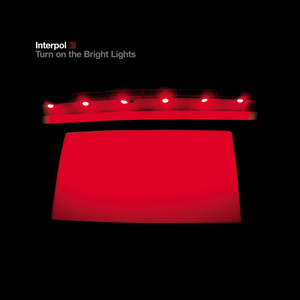Published on Oct 24, 2003
Ambition has typically been frowned upon in the indie world.
Even though the Strokes are fairly mainstream, they strive to
achieve a scrappy, loose sound. As pretentious as Pavement was in
its career, the members put forth a ton of effort to make their
albums sound like they were recorded on the first take in a
garage.
As good as this approach is for bands, it is equally admirable
when an indie band makes a legitimate stab at greatness. In 2002,
Interpol dared to be a polished New York band and released one of
the best debut albums of this decade with
Turn on the Bright Lights. It ranks up with the best works
of Sisters of Mercy and The Jesus and Mary Chain.
Of course, when you’re making a goth album, you either hit a
bulls-eye or you make an album that is more suited for a
second-rate vampire flick than your headphones. Many Joy Division
purists decried Interpol for stealing their sound. What these music
snobs fail to realize is that originality alone doesn’t make a
great band. If that were the case, Ween would be the best band in
the world.
What
Turn on The Bright Lights lacks in originality, it more than
makes up in atmosphere and sound. Lead singer and main lyricist
Paul Banks knows how to make a song stick in your head. The music
in
Turn on The Bright Lights is never cluttered, leaving Banks
to do his best Robert Smith-meets-Ian Curtis impersonation. And in
true goth fashion, the emotions are more bloated than the diary of
a freshman theatre major. In “NYC,” Banks compares the New York
subway to a porno. In “Stella Was a Driver and She Was Always
Down,” Banks one-ups Marlon Brando for the best yelling of the name
“Stella!”
The best debut albums are able to transport you to environments
far removed from your surrounds, be it the ghettos of Compton
(NWA’s Straight Outta Compton) or the dirty strip circuits of Las
Angeles (G’NR’s Appetite for Destruction). With
Turn on the Bright Lights, the listener is transported to
blacklit rave clubs (“Say Hello to Angels”), dirty subways and post
September 11 New York. With music this good, who cares if it’s
nothing you haven’t heard of before? If the best artists steal,
Turn on the Bright Lights is an epic heist worth celebrating.
